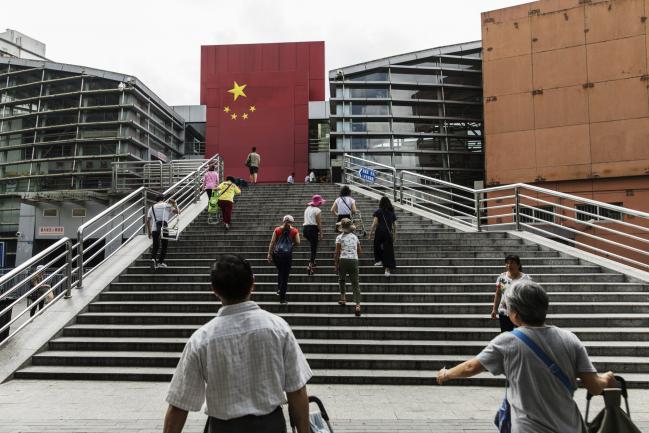(Bloomberg) -- China’s broadest measure of new credit slowed, underlining concerns about the economy that have prompted authorities to start doing more to support growth.
- Aggregate financing stood at 1.04 trillion yuan ($151 billion) in July, the People’s Bank of China said on Monday. That was slower than the 1.39 trillion yuan in June, using the central bank’s new calculation method for this data
- The new index includes more types of credit and so isn’t comparable to Bloomberg’s survey or the data reported in previous months
- New yuan loans stood at 1.45 trillion yuan, versus a projected 1.275 trillion yuan and 1.84 trillion yuan the previous month
- Broad M2 money supply rose 8.5 percent, rebounding from record low expansion in June
Policy makers have pulled back on the pace of tightening and encouraged banks to lend more to counter a slowing economy and what looks like a potentially prolonged trade war with the U.S. Still, the chances of across-the-board stimulus has so far been ruled out, with policy makers continuing to keep a wary eye on the country’s debt pile.
New Measure
The central bank’s new measure of aggregate financing includes banks’ asset-backed securities and loan writeoffs. Using this new calculation, aggregate financing expanded by 1.39 trillion yuan in June, compared to a 1.18 trillion yuan expansion under the old measurement. The bank released historical data back to January 2017 for the new index.
“Policy makers are sticking to the direction of cracking down on shadow banking, and moving loans onto balance sheets,” said economist Xie Yaxuan at China Merchants Securities Co. However, “the steep fall in shadow banking we saw in June isn’t sustainable either. China’s still in a period of transmitting monetary easing to credit expansion.”
The shadow banking sector continued to shrink, falling by about 489 billion yuan in July after a 691.7 billion yuan drop in June.
Earlier easing measures are yet to have an effect on credit extension with July’s aggregate financing slowing on the continued contraction of shadow banking, said Xia Le, Banco Bilbao Vizcaya Argentaria SA’s chief Asia economist in Hong Kong. “Aggregate financing may pick up a little toward the end of the year with the pace of shadow banking contraction slowing, but it won’t become a major source for credit supply again.”
Data for monthly bank loans released by the PBOC match figures issued earlier over the weekend by the China Banking and Insurance Regulatory Commission.
(Updates with economist’s comment in penultimate paragraph.)
